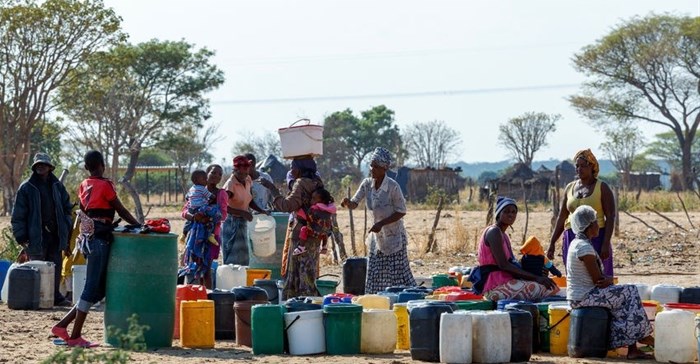
Top stories






More news

Marketing & Media
Warner Bros. was “nice to have” but not at any price, says Netflix

Logistics & Transport
Maersk reroutes sailings around Africa amid Red Sea constraints
















Go far, fast and together
Monika Weber-Fahr, COO of Sustainability for All (SE4All) played on the African proverb mentioned yesterday, saying, “we need to go far, fast and together.”
She explained that central to the COP21 goals were energy and water, and that they exist together and need to be developed hand in hand.
“The perception exists that economic growth is linked to being energy intensive, but various countries are showing that this is not necessarily true by using different approaches,” she said.
Different forms of energy generation consume different amounts of water, and this impacts on decisions around what energy source to use.
Weber-Fahr mentioned that women pay the highest price for the lack of water or energy, particularly in underdeveloped countries. The time wasted on collecting water and chores such as cooking – usually using biomass fuels – when they could be productive could be reduced by simple energy solutions. “If men were to cook, we would have clean stoves everywhere.”

On a higher level, she said that there were very few women serving on boards of companies including utilities, and if this was addressed, it could change the focus on priorities regarding energy solutions.
The reality is that climate change is happening now, with 2015 being the hottest recorded year and March 2016 as the hottest month ever. So the three real risks in 2016 are the water crisis, food and prices and energy, explained Dhesigen Naidoo, CEO: Water Research Commission, SA.
He said that there are some worrying trends in practices in all three of the water usage areas, namely agriculture, domestic and industry. “Water is getting dirtier, so we need more energy to clean it.”
Speaking of energy, Naidoo said there is still too much reliance on fossil fuels, and even though there is a move towards renewables, it’s happening slowly.
When it comes to solutions, Naidoo said there should be a focus on resource wise behaviour and innovation to move to high resource security. Strategies and interventions must be converged on all three risk areas to achieve long-term outcomes.
According to Henk Ovink, special envoy for international water affairs, water is the cause for many of the conflicts in the world, and too much or too little of the stuff is the reason for many of the natural disasters.
In addition, 50% of the world’s aquifers are past their tipping point, and therefore can’t never be recovered.
He paints a grim picture, and said that although the outcomes of the Paris Agreement are ambitious, it is a mirror to our failure.
Ovink suggested that a transformative approach that is long term and comprehensive, while incorporating short-term goals and innovation, inclusive collaboration, public private partnership funding and accountability was the way forward.
More specifically Ovink said water pricing will create level playing field and there needs to be an energy leapfrog to renewables in which South Africa can play significant role.
Africa is home to approximately 1,2bn and under 40% of the population has access to a modern form of energy, said Akinwole Omoboriowo, CEO: Genesis Electricity.
The potable water supply is getting stressed and the continent is largely reliant on biomass as a primary form of energy. But the electricity and potable water production and supply challenges on the continent not insurmountable.
He used the term “coopetition”, referring to innovative collaborative commercial solutions working for the common good in place of negative competition. This requires a stronger adherence to rule of law and continuity from responsible governments and a responsible private sector.
Omoboriowo’s envisioned future includes every spot lit up on the map of Africa. “It starts with baby steps through small projects. Working in a world of such complexity, water and energy can’t be mutually exclusive,” he said.
African Utility Week takes places at the CTICC in Cape Town from 17-19 May, 2016.
